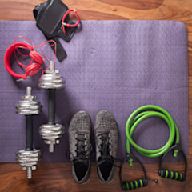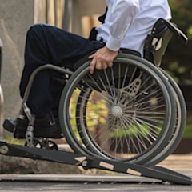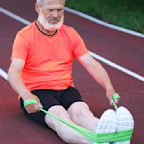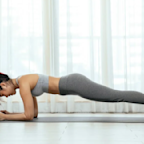Search results
Discover more placesNear Columbus, OH
People also search for
Refine results for Fitness
- Exercise controls weight. Exercise can help prevent excess weight gain or help maintain weight loss. When you engage in physical activity, you burn calories.
- Exercise combats health conditions and diseases. Worried about heart disease? Hoping to prevent high blood pressure? No matter what your current weight is, being active boosts high-density lipoprotein (HDL) cholesterol, the "good" cholesterol, and it decreases unhealthy triglycerides.
- Exercise improves mood. Need an emotional lift? Or need to blow off some steam after a stressful day? A gym session or brisk walk can help. Physical activity stimulates various brain chemicals that may leave you feeling happier, more relaxed and less anxious.
- Exercise boosts energy. Winded by grocery shopping or household chores? Regular physical activity can improve your muscle strength and boost your endurance.
- Overview
- 1. Exercise can make you feel happier
- 2. Exercise can help with weight management
- 3. Exercise is good for your muscles and bones
- 4. Exercise can increase your energy levels
- 5. Exercise can reduce your risk of chronic disease
- 6. Exercise can help skin health
- 7. Exercise can help your brain health and memory
- 8. Exercise can help with relaxation and sleep quality
- 9. Exercise can reduce pain
Regular exercise has been shown to help boost energy levels and enhance your mood. It may also be associated with many other health benefits, including a reduced risk of chronic disease.
Exercise is defined as any movement that makes your muscles work and requires your body to burn calories.
There are many types of physical activity, including swimming, running, and walking, to name a few.
Being active has been shown to have many health benefits, both physically and mentally. It may even help you live longer.
Exercise has been shown to improve your mood and decrease feelings of depression, anxiety, and stress.
The authors of a 2019 review found that 10–30 minutes of exercise is enough to improve your mood.
Exercise may increase brain sensitivity to serotonin and norepinephrine. These hormones relieve feelings of depression. It may also increase the production of endorphins, which help produce positive feelings and reduce the perception of pain.
Stopping to exercise may also affect your mood. A 2017 review found that active people who stopped exercising regularly experienced significant increases in symptoms of depression and anxiety, even after only a few weeks.
Inactivity may play a major factor in weight gain and obesity, which may lead to health complications. Exercise can help you manage your weight by helping with energy expenditure, also known as spending.
Your body spends energy in three ways:
•digesting food
•exercising
•maintaining body functions, like your heartbeat and breathing
A reduced calorie intake may lower your metabolic rate, which can temporarily delay weight loss. However, regular exercise may increase your metabolic rate. This can burn more calories and help you manage your weight.
Exercise plays a vital role in building and maintaining strong muscles and bones.
As people age, they tend to lose muscle mass, strength, and function. This leads to an increased risk of injury. Practicing regular physical activity is essential to reducing muscle loss and maintaining strength as you age.
Exercise also helps build bone density. The authors of a 2022 review found that regular exercise significantly improved bone density in the lumbar spine, neck, and hip bones. This may help prevent osteoporosis later in life.
Impact exercises like gymnastics, running, or soccer may help promote higher bone density than no-impact sports like swimming and cycling.
Exercise can help boost your energy levels while helping to reduce fatigue. This may help as a treatment method if you have certain health conditions, such as cancer.
Aerobic exercise boosts your cardiovascular system and improves lung health, which may help with energy levels.
Your heart pumps more blood as you move, delivering more oxygen to your working muscles. With regular exercise, your heart becomes more efficient at moving oxygen into your blood.
Over time, exercise results in less demand on your lungs. This is one of the reasons why you may find yourself getting less and less out of breath during exercise, according to the American Lung Association.
Regular physical activity is a key factor in reducing your risk of chronic diseases, such as:
•type 2 diabetes
•heart disease
•cancer, such as breast, colorectal, lung, and liver cancer, among other types
•high LDL cholesterol
•hypertension
Your skin can be affected by the amount of oxidative stress in your body.
Oxidative stress occurs when your body’s antioxidant defenses cannot completely repair the cell damage caused by compounds known as free radicals. This can damage the structure of the cells and negatively impact your skin.
Intense and exhaustive physical activity may contribute to oxidative damage. However, a 2018 review suggests that regular moderate exercise may actually help alleviate the stress caused by free radicals.
The authors of a 2021 review concluded that regular exercise may help delay the appearance of skin aging, prevent psoriasis, and improve venous leg ulcers.
Exercise can improve brain function and protect your memory and thinking skills.
To begin with, exercise increases your heart rate. This promotes the flow of blood and oxygen to your brain. It can also stimulate the production of hormones that enhance the growth of brain cells.
For example, exercise has been shown to cause the hippocampus to grow in size, which may help improve mental function. This is part of the brain that’s vital for memory and learning.
Regular physical activity is important in older adults because it can help slow down the physiological effects of aging in your brain. It may also help reduce changes in the brain that can contribute to conditions like Alzheimer’s disease and dementia.
Regular exercise can help you relax and sleep better.
It may help improve your sleep quality because the energy loss that occurs during exercise stimulates restorative processes during sleep.
Also, the increase in your body temperature during exercise may help it drop during sleep, which could promote better sleep.
A 2018 study conducted over 4 months in people with chronic insomnia found that both stretching and resistance exercise helped improve sleep quality and duration while decreasing the amount of time it takes to fall asleep.
Chronic pain can be debilitating. For many years, the recommendation for treating chronic pain was rest and inactivity.
However, the authors of a 2021 review suggest that aerobic exercise may serve as a natural treatment option to provide pain relief and improve quality of life.
One way that exercise may help prevent or reduce chronic pain is because it increases your pain tolerance over time.
Exercise may also help you control pain associated with various health conditions, including:
•chronic low back pain
•fibromyalgia
- Lunges. Challenging your balance is an essential part of a well-rounded exercise routine. Lunges do just that, promoting functional movement while also increasing strength in your legs and glutes.
- Pushups. Drop and give me 20! Pushups are one of the most basic yet effective bodyweight moves you can perform because of the number of muscles that are recruited to perform them.
- Squats. Squats increase lower body and core strength, as well as flexibility in your lower back and hips. Because they engage some of the largest muscles in the body, they also pack a major punch in terms of calories burned.
- Standing overhead dumbbell presses. Compound exercises, which utilize multiple joints and muscles, are perfect for busy bees as they work several parts of your body at once.
Feb 1, 2023 · Common types of exercise include aerobic, strength, calisthenics, HIIT, boot camps, flexibility, and stability. You can do them individually or combined. How to get started
Sep 13, 2023 · Learn how exercise can improve your physical and mental health, prevent diseases, and boost your lifespan. Find out how much exercise you need, what types of activities to do, and how to make exercise a part of your routine.
- 53 sec
- WebMD Editorial Contributor
Exercise has significant benefits for your body and mind. Here are the top nine benefits of regular physical activity and exercise.
In the short term, exercise helps to control appetite, boost mood, and improve sleep. In the long term, it reduces the risk of heart disease, stroke, diabetes, dementia, depression, and many cancers.















































































